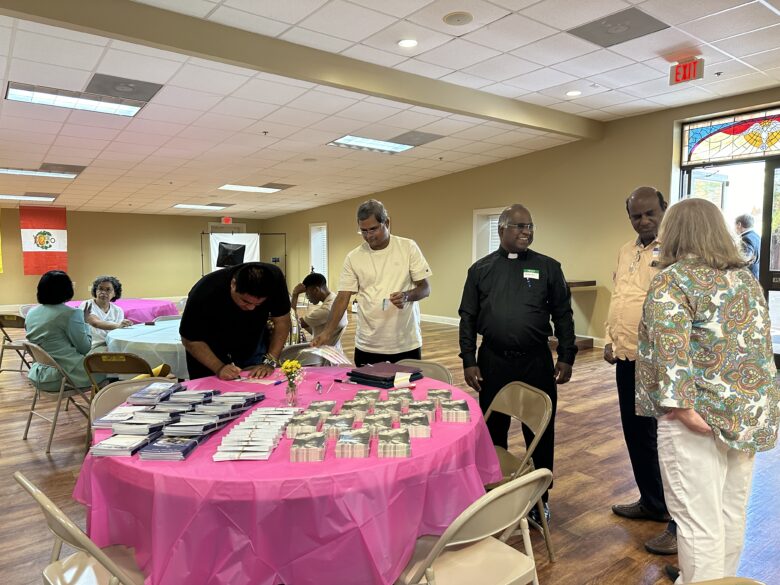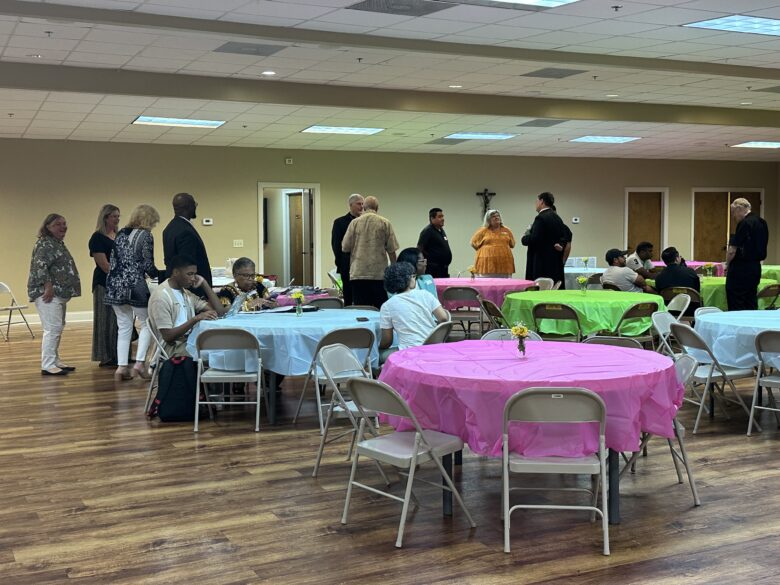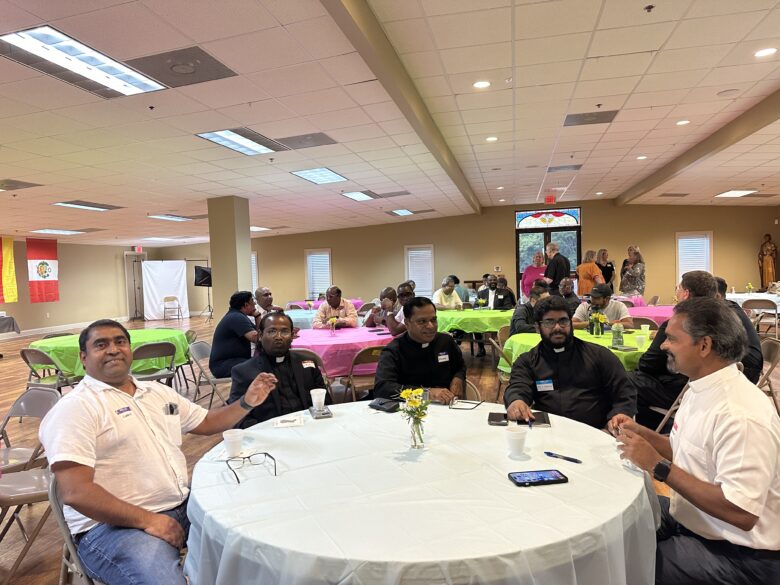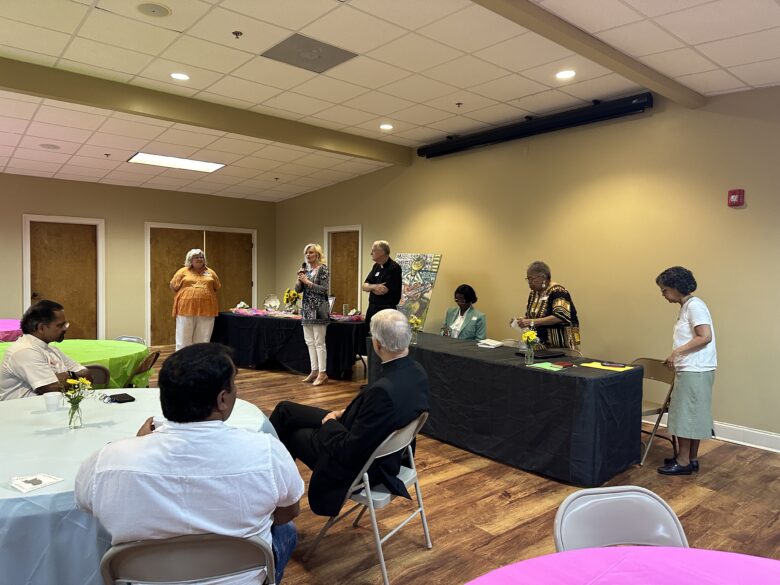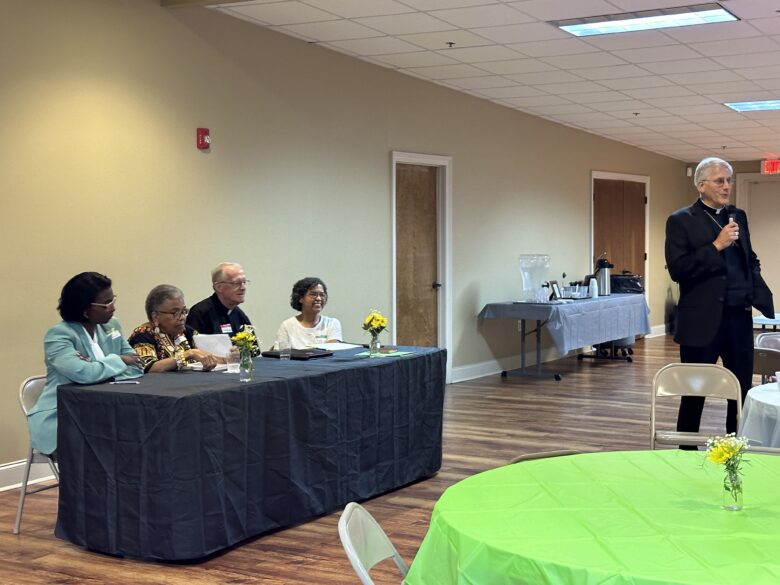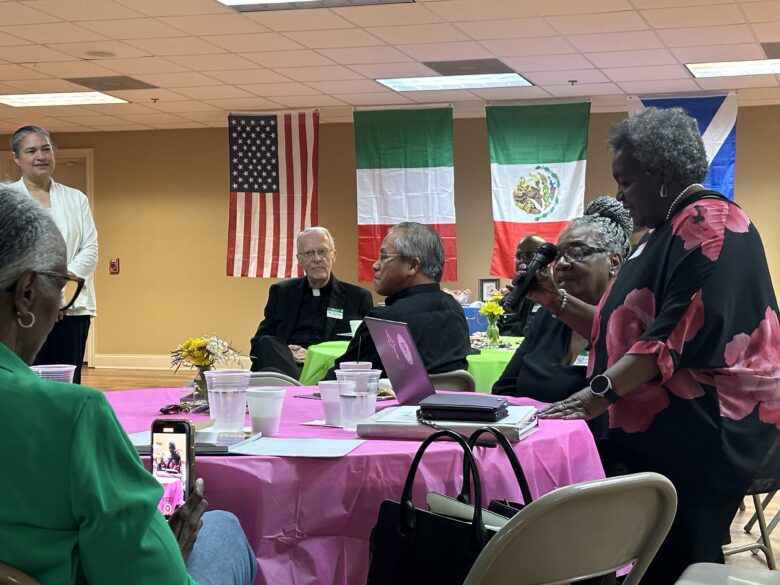By Joanna Puddister King
JACKSON – On Wednesday, Aug. 28 over 70 parish leaders from across the Diocese of Jackson gathered for an intercultural competence workshop held at St. Jude Pearl by the Office of Intercultural Ministry for the diocese. At the event, twelve different countries were represented other than the United States, including Nigeria, India, Vietnam, Columbia and Mexico, among others. The event spoke to the reality present that diocesan ministries need to learn to serve within the cultural reality of the diocese.
The workshop, focusing on culture in general and not on a particular one, explored topics such as how culture works, parameters of culture, communications skills and the movements of parish integration.
Deacon Juan Carlos Pagán of the Diocese of Lafayette was one of the featured speakers at the event. Originally from Puerto Rico, with a “Cajun” wife of 25 years, he spoke on the need of inculturation – wrapping the core message in a way that other cultures can understand.
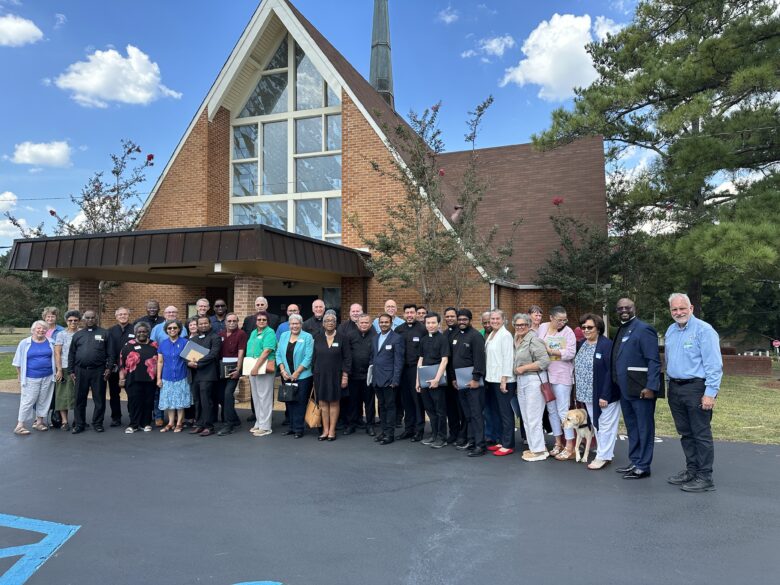
With all of the different countries represented that were present at the event, Deacon Pagán said that “we need to learn how to serve in ways that are applicable to the different cultural realities.”
Using the Blessed Virgin Mary as an example, he pointed out that in her different apparitions, she appears in the image of the people she is speaking to. “Guadalupe is a great example,” said Deacon Pagán. “You have Mary showing up dressed in a way that indigenous people could understand who she was. This is an example of inculturation – it’s the wrapping of the truth of Jesus Christ … in a package that is understandable for the recipients.”
Statistics of our changing diocese were also featured during the event. Bishop Joseph Kopacz spoke briefly at the intercultural workshop on the extensive CARA study undertaken through the pastoral reimagining process the diocese undertook over the past year, that now continues on a parish level. He said it was important for parish leaders to be grounded in reality regarding the make-up of the demographics in the diocese and note “who will be the Catholic population going forward 20-30 years.”
Bishop Kopacz said that for the purpose of evangelization, some parish communities did not realize the size of the Catholic population in their areas that are not attending church until viewing the CARA study. Many want to reach out and bring them into the Catholic community and doing that through elevating intercultural competence is a step in the right direction, he said.
Also speaking at the event was Olga Lucia Villar, who currently serves as executive director for the US Catholic Bishops Southeast Office for Hispanic Ministry and the Southeast Pastoral Institute (SEPI). Columbian by birth, she immigrated as a teenager with her family to Miami in 1987.
Using stories from her wide berth of experiences on the parish level and world-wide missionary experiences, Villar painted a picture of a world with intercultural interaction as a way of life and not a problem to be solved.
She asked all present at the event to keep an image of Jesus and the church that he dreams about in the forefront of everything done to further the work of the church as the Body of Christ.
“Think, do my actions and my pastoral work do reflect that Jesus that … invites us to follow him,” said Villar.
She says that learning is the key to bridging the gap between cultures. “Ask, how much am I willing to continue learning,” said Villar. “Is Jesus done with me? Am I all that He dreamt of me to be … or do I have more room for growth in my faith and in my way of seeing life.”
Villar outlined nine movements to foster an environment of understanding between cultures. The moments include:
- Reaching out and meeting communities where they are;
- Welcoming groups into parish life by showing hospitality;
- Developing ministries and ministers to the new communities;
- Building relationships across cultures and ministries;
- Championing leadership development and formation for ministry;
- Open wide the doors for decision-making process by making space at the table where decisions are made on culturally specific ministries;
- Strengthening a sense of ownership with meaningful ways to be involved in the life of the parish faith community;
- Sowing and reaping full ownership and stewardship by allowing cultural groups to contribute their time, talent and treasure to the parish; and
- Achieving the full commitment to the mission of the parish by strengthening the unity of the parish while honoring its diversity.
“We are a eucharistic people,” said Villar. “Think what … Jesus asks of us today in the church that needs healing, reconciliation, that needs to renew its sense of hospitality of being embraced.”Sister Amelia Breton, SBS, of the Office of Intercultural Ministry for the diocese, was pleased with the level of participation at the event and said that the purpose of the event was to assist leaders to better understand the dynamics of other cultures.
“The communities across the diocese are so different, especially within the Hispanic communities,” said Sister Amelia. “It reminds me that diversity is greater and more complex than we can imagine.” Sister Amelia plans to continue conversations on best practices in working in intercultural parishes and also held a similar workshop in Spanish at Immaculate Heart of Mary in Houston on Saturday, Sept. 7.
(Editor’s Note: The CARA study completed through the pastoral reimagining process on the demographics of the Catholic population in the Diocese of Jackson can be viewed at https://bit.ly/CARA_CDJ. For more resources on Intercultural Ministry contact Sister Amelia Breton, SBS at amelia.breton@jacksondiocese.org.)
